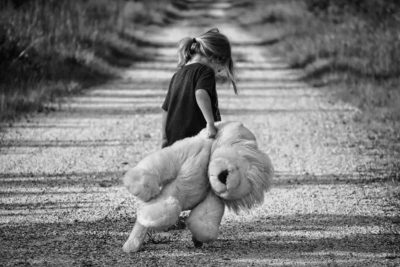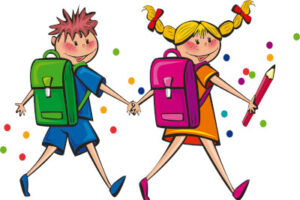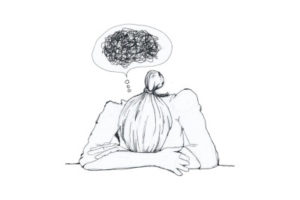THE ROLE OF THE PARENT IN THE CHILD’S PEER CONFLICTS


Beata Zielińska-Rocha Psycholog i terapeutka, współprowadzi poradnię Psychoterapia w relacji Data publikacji:8 listopada 2012 r.
The topic of conflicts in a child’s life has already appeared in a series of Schools for parents. We wrote about, among other things, the role of solving conflicts in upbringing with its risks and opportunities, as well as about the conflicts between a child and a teacher. This time we will focus on conflict situations emerging between students in the school environment and the role of parents in preventing and dealing with this type of situation. It is worth encouraging parents to look closely at how they react to conflict situations between children, between children and themselves and between each other. What can and should parents do when a child is being ridiculed, offended, excluded from the group, pushed or hit? How to help your child cope with difficult situations with peers?
Sources and types of conflicts between students
Conflicts between children at school are common and inevitable. The data which can be found in various sources indicate that the vast majority of children are in a conflict situation with peers from time to time. These situations can take many forms – from harmless, short-term disputes to dangerous situations related to the use of violence against the child, sometimes repeated multiple times, which affect the child’s development destructively. Naturally existing differences between students, for example, in personality, level of knowledge, intelligence, social skills, material status, views, value system, are the breeding ground for the emergence of more or less intensified disputes.
Conflicts between children are often the shows of force or a desire to gain recognition of the schoolmates. They may sometimes be associated with the rivalry over grades, in other cases with schoolmate relationships, jealousy of the popularity of another person or rivalry over a boyfriend or a girlfriend.
Some of the conflicts between students may be also unintentionally caused by a teacher. The way the teacher treats individual students can be applied and imitated by other schoolmates. If the student is convinced that he/she was treated unjustly by the teacher, it may develop the student’s aversion to other children who were assessed differently, more leniently. Especially a child who is favored by the teacher can become the object of attacks from the class.
A class is a social group and as such is an area of cooperation and/or competition. Individual members of the class serve a variety of roles. Some are leaders; others have the role of the scapegoat who focuses negative emotions and behavior of other students. Conflicts may take the form of a dispute between two students, between an individual and a group or even the whole class, or between two competing groups.
Results of conflicts
The effects of school conflicts may take various forms depending on the type, frequency and severity of a conflict situation. Reaction of a child also depends on his/her personality, skills of coping with stress and a subjectively perceived support obtained from other peers and adults (teachers, parents).
Possible impact of unresolved conflicts is:
- lowered self-esteem,
- deterioration of academic performance,
- reluctance to go to school,
- isolation from peers,
- school fear,
- depression,
- somatic disorders (headaches, abdominal pain, sleeping problems),
- suicide attempts.
How to prepare a child to cope with difficult situations
Parents have a very limited impact on whether the child is in a conflict situation with a peer. They may, however, prepare a child and help him/her deal better and more effectively with such situations. The tasks of parents are:
- to build self esteem of a child,
- to teach emotion recognition skills and talking about them,
- to equip the child with skills of expressing own opinion and assertive defense of own views,
- to learn to respond to criticism,
- to build skills of refusal,
- to talk to a child about his/her rights in social contacts.
(These areas were mentioned in previous articles of the cycle School for parents).
It is worth talking to a child about difficult situations and ways of solving them at every occasion. A great opportunity for such discussions can be shared reading, watching a movie or the analysis of emerging conflicts between siblings. Children should know how to defend themselves when attacked, to whom they can turn to for help if they are not able to cope with difficult circumstances. Also parents themselves should strengthen their ability to resolve conflicts in accordance with the principle of win-win, their skills of compromising and to model appropriate behavior. The child observes how people who are important for him/her behave in difficult situations and imitates their behavior.
As in many other situations, the child should know that he/she can talk with parents about what is happening that he/she will be listened to, will receive support, and will not be subject to additional mocking or negative evaluation. Remember that as parents we can respond to the emergence of conflicts in a child’s life only when we know about them. Unfortunately, many conflicts remain secret. They may affect the child destructively and there is nothing parents can do because they have no awareness of the existence of the problem.
The most common mistakes made by parents
When a child says to parents that he/she experienced something that affected or hurt him/her, parents should not:
- ignore the child, show lack of any response;
- ignore the problem, say: It was not so serious or Do not exaggerate, or It certainly is not so bad;
- offer advice before you investigate the situation and understand what exactly happened;
- take it for granted that the child is a victim and the other party of the conflict is an aggressor;
- take it for granted that a child actively contributed to the conflict before investigating the situation by saying: You probably provoked him or you’re not saint yourself. Last week it was me who had to listen to a teacher that you are laughing at your schoolmates;
- assess the child negatively and make comments like: Why are you telling me about it? You should deal with it yourself or you’re such a loser. You always allow the others to ill-treat you, or you should deal with it. Don’t behave like a softie;
- encourage aggression: If someone hits you, hit back or Hit her so that she will learn her lesson or Next time tell her something to learn her a lesson;
- solve the problem behind the child’s back, without his/her participation.
What should parents do if there was a conflict?
Intervention of parents in the event of conflict between the child and peers depends on:
- child’s age – the younger the child, the greater help of parents may be necessary − small children cannot control their emotions, they know less number of strategies to deal with problems;
- severity of conflict and its impact on the child;
- child’s expectations towards parents.
It is worth sometimes to stop your impulse and turn off an auto-pilot which makes us step into the action, dash to school, call the classmate’s parents every time you think your child is going to get hurt. The child will encounter various problematic situations in relationships with other people throughout his/her life. It is necessary for a child to acquire the skills of coping in these situations.
What to do when a child has a conflict with peers at school
Minor conflict
In the case of minor disputes and conflicts it is worth limiting your role to supporting your child at home and to learning the strategy of coping with problems. You may help your child to look at the situation, its causes and course, and come up with ideas of solving it or making it easier. It is important, as far as possible, that the ideas of solutions are the child’s ideas. If you suggest something, you cannot impose your solutions and only leave it to your child for consideration. The child can apply a specific solution if it matches his/her capabilities, skills and personality. Older children often do not expect from parents any ideas for solutions. They want to be heard and get support and understanding for their feelings and difficulties.
Strategy of dealing in the situation of a minor conflict with peers. You can teach your child using it!
Step 1.
Leaving or ignoring
- physical withdrawal from the conflict, lack of eye contact.
Step 2.
Reaction
- saying “stop” or “enough” firmly but without aggression,
- an attempt to turn the situation in a joke,
- announcement of consequences.
- Step 3.
Seeking for help - the child turns to a person who is not involved in a situation (teacher, homeroom teacher, school psychologist).
Serious conflict
In the event of major conflicts in which the physical safety or mental well-being of the child is at risk, you should strongly react, particularly if you notice the symptoms indicating that the child is experiencing serious difficulties and cannot deal with them. In addition to helping your child at home, you can:
- contact with parents of the other party of the conflict and work out solutions together,
- contact with parents of the other party of the conflict and to arrange a joint meeting of parents and children with the aim of solving a conflict,
- talk with the teacher/homeroom teacher, find out more about the conflict, make a decision together for further actions,
- ask the school about mediation in which both parties and parents would participate.
When your child is aggressive towards peers….
Parents should be worried about the child’s behavior showing that he/she uses verbal or physical aggression towards peers. The issue of aggression towards peers can be indicated by:
- regular phones from school with complaints about the child’s behavior in relation to his/her peers,
- frequent negative comments about the child’s behavior,
- getting into fights,
- lack of tolerance for diversity,
- tendency to negative comments on other students,
- excessive rivalry,
- a strong need to be the best, to win.
In this situation, it is necessary to analyze the child’s behaviors in terms of reasons, their duration and consequences. In the first instance, parents should look at the rules which are at home, style of communication and problem-solving. You may find out that changes are necessary.
Recommended actions for parents when a child has a problem with aggression towards peers
- Provide your child with more time spent with parents or other guardians instead of, for example, many hours of sitting in front of a computer screen or TV.
- Limit contact of the child with violence on television or video games.
- Introduce clear rules of behavior and consequences of non-compliance (as well as a system of rewards for behavior in accordance with the rules – this will help to master them).
- Good cooperation with school – develop a plan of prevention against aggressive behavior and determine the consequences that the child will suffer in the case of aggressive behavior (the child should suffer the consequences of their own actions).
- Sometimes the help of psychologist may be necessary to acquire by the child (and sometimes also by parents) new and more constructive ways of dealing with anger or frustration, and to build positive relationships with peers.




